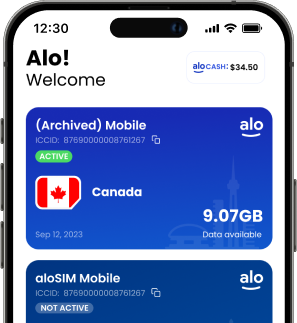Depending on the gig, business travel can be a fun perk or an additional pressure—and one that comes with a need for additional funds as well. Perhaps employees have an individual travel budget or perhaps it’s part of a larger team or division budget.
Regardless, keeping costs at a minimum can help to save money on business travel, allowing more travel, allowing other employees the chance to travel, or cycling back into overall profits.
1. Book in advance
Often flights and accommodations are less expensive the further from the date that they’re booked. Encourage employees to plan and book as soon as they’re aware of a meeting or event that will require their attendance, especially if it might happen during typically busy seasons.
2. Share corporate discounts
Sometimes companies are eligible for corporate discounts with airlines, hotel chains, or car rental companies. Share any corporate registration numbers or accounts with travelling employees to ensure that they can reap the benefits of being attached to the company. Be sure to provide anyone on your team who is booking treacle with a list of approved vendors and discount codes to use when making arrangements or while on the road.
3. Encourage loyalty programs
Loyalty programs are a fun way to save on expenses and also potentially earn some special bonuses or rewards. Think: first class flights, room upgrades, free meals, or cash-back. Redeem points, trade in miles, or any other type of exchange that will get you more for your money and might make the travel more enjoyable.
4. Get an international eSIM
Employees on the road for work likely still need to stay in touch with colleagues or clients back at home. Avoid roaming charges and save money on business travel by making the easy switch to an eSIM to use for communications while abroad. aloSIM offers plans for just a few dollars and with enough data to last well beyond an average business trip.
5. Opt for less-expensive accommodations
While luxury hotels may be tempting, they can also be expensive. Many budget hotels still offer clean, comfortable rooms at a fraction of the cost of higher-end hotels. Another option is to explore VRBO or Airbnb, which might allow multiple employees to share a space, plus offer extra amenities (like a kitchen or laundry).
6. Use public transportation
Some cities offer fantastic public transit—and can be even more accessible and faster than taking a vehicle around town. Depending on the region (or country), public transit might even be the norm. If there’s a subway, express rail, streetcar, or bus, get your employees to consider if it might be a worthwhile alternative for their convenience, in addition to saving costs.
7. Internal incentives
While business travel might be a fun adventure for some, not every employee will enjoy the experience to the same extent—particularly because it’s business first, and not a holiday. To that end, companies can consider offering incentives to help employees both stay on budget as well as to get the most from their time on the road. Offering an extra vacation day or a financial bonus to those who are able to stay under budget is a good strategy for effective recognition of their additional efforts.
8. Share a secret number for rewards
Travel can offer opportunities to sign up for loyalty or rewards programs for businesses or services that are not available at home base. With a dedicated secret number for signing up for such services, employees can feel free to reap some fun rewards without having to use their personal numbers or reveal themselves as tourists.
9. Reimburse right away
Nobody likes to have to pay out-of-pocket while travelling for work but sometimes incidentals arise and it cannot be avoided. Ensure that reimbursement is processed quickly and without undue bureaucracy to show a level of respect and appreciation to employees, especially those who are making efforts to help with cost-saving travel measures and save money on business travel.
10. Go remote
Flexible work plans can reduce unnecessary time on the road and might even eliminate some travel altogether. An accessible remote work policy for online jobs from abroad and support for virtual meetings means that contacts and communications can take place without having to overnight or journey long distances when it’s not truly necessary. Trust that your employees will have the experience and know-how to decide when to take advantage of a virtual opportunity and when to spend their travel budget on off-site meetings.





